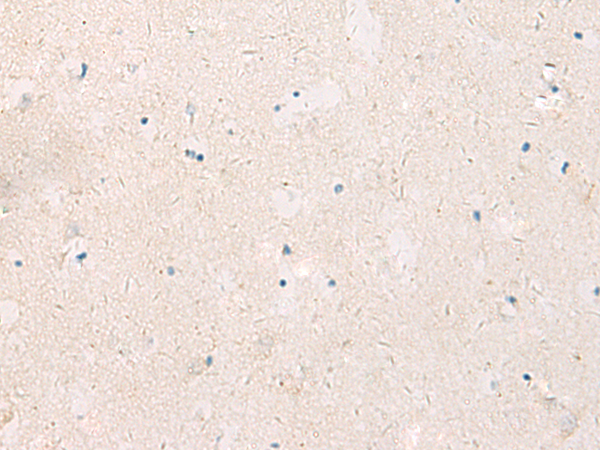
| WB | 咨询技术 | Human,Mouse,Rat |
| IF | 咨询技术 | Human,Mouse,Rat |
| IHC | 1/50-1/100 | Human,Mouse,Rat |
| ICC | 技术咨询 | Human,Mouse,Rat |
| FCM | 咨询技术 | Human,Mouse,Rat |
| Elisa | 1/5000-1/10000 | Human,Mouse,Rat |
| Aliases | CSEN; DREAM; KCHIP3 |
| Host/Isotype | Rabbit IgG |
| Antibody Type | Primary antibody |
| Storage | Store at 4°C short term. Aliquot and store at -20°C long term. Avoid freeze/thaw cycles. |
| Species Reactivity | Human, Mouse, Rat |
| Immunogen | Fusion protein of human KCNIP3 |
| Formulation | Purified antibody in PBS with 0.05% sodium azide and 50% glycerol. |
+ +
以下是3篇关于KCNIP3抗体的参考文献,信息基于公开研究整理:
---
1. **文献名称**: *"KCNIP3 interacts with APP and modulates the processing of the β-amyloid precursor protein"*
**作者**: Liang, S., et al.
**摘要**: 该研究通过免疫共沉淀和Western blot技术,利用KCNIP3抗体验证了KCNIP3与β-淀粉样蛋白前体(APP)的相互作用,发现KCNIP3通过调控APP的剪切过程影响阿尔茨海默病相关β-淀粉样蛋白的生成。
---
2. **文献名称**: *"Expression and regulation of KCNIP3 in murine heart"*
**作者**: Deschênes, I., et al.
**摘要**: 研究使用KCNIP3特异性抗体检测小鼠心脏组织中KCNIP3的蛋白表达水平,发现其在心肌细胞中富集,并参与调控电压门控钾通道Kv4的功能,影响心脏动作电位复极化过程。
---
3. **文献名称**: *"KChIP3 modulates tau phosphorylation and Aβ toxicity in Alzheimer's models"*
**作者**: Zaidi, S., et al.
**摘要**: 通过免疫组化和Western blot分析,结合KCNIP3抗体,研究发现KCNIP3在阿尔茨海默病模型中介导tau蛋白异常磷酸化,并增强β-淀粉样蛋白的神经毒性,提示其作为潜在治疗靶点。
---
如需具体文献来源或补充DOI信息,可进一步提供数据库检索关键词(如PubMed ID)。
KCNIP3 (Kv Channel-Interacting Protein 3), also known as calsenilin or DREAM, is a calcium-binding protein belonging to the neuronal calcium sensor family. It interacts with voltage-gated potassium channels (Kv4/KShal), modulating their trafficking and gating properties to regulate neuronal excitability and action potential duration. As a multifunctional protein, KCNIP3 binds to presenilin and may influence γ-secretase activity, linking it to pathways implicated in Alzheimer’s disease. It also acts as a transcriptional repressor by binding to DNA regulatory elements in a calcium-dependent manner.
KCNIP3 antibodies are essential tools for studying its expression, localization, and functional roles in the brain and other tissues. They are widely used in techniques like Western blotting, immunohistochemistry, and immunofluorescence to investigate KCNIP3’s involvement in neurological disorders, including epilepsy, neurodegeneration, and psychiatric conditions. Dysregulation of KCNIP3 has been associated with altered synaptic plasticity, calcium signaling defects, and pathological neuronal hyperexcitability. Commercial antibodies often target specific epitopes, such as the N-terminal or C-terminal regions, to ensure specificity given the high homology among KChIP family members. Validation via knockout controls or siRNA knockdown is critical due to potential cross-reactivity. Research on KCNIP3 continues to uncover its dual roles as both an ion channel modulator and a nuclear transcriptional regulator, highlighting its importance in cellular homeostasis and disease mechanisms.
×